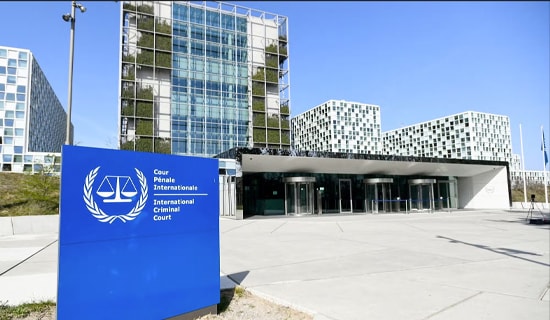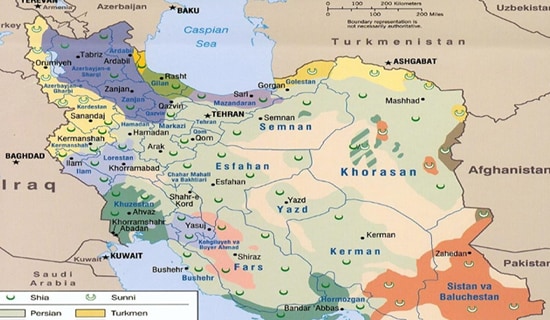
TTP commander Umar Khalid Khorasani (Image courtesy: Reuters)
Introduction
Following the May 2, 2011, killing of Osama bin Laden in a U.S. operation in the Pakistani city of Abbottabad, there are indications that leading commanders of Tehreek-e-Taliban Pakistan (TTP, or the Movement of Pakistani Taliban) are vying for control of the organization, while TTP Emir Hakimullah Mehsud's grip on the organization may be waning.
In recent weeks, Maulana Waliur Rehman, who is the TTP's Emir for the Mehsud tribal region of Waziristan, and Umar Khalid Khorasani, the TTP's Emir for Mohmand Agency, have released several media statements, indicating attempts by them to assert control on the Tehreek-e-Taliban Pakistan. Also, a leading Taliban commander, Fazal Saeed Haqqani, recently announced that he is breaking away from the TTP, the umbrella alliance of Taliban commanders, and cited differences with the TTP leadership for his decision to quit.
On July 5, 2011, a Pakistani media report which quoted anonymous Taliban commanders and Pakistani intelligence officials noted that Hakimullah Mehsud has been in isolation for more than a year,and is rapidly losing control over the TTP.[1] "Hakimullah might soon be faced with more rebels from within the TTP after last week's defection by one of his top commanders [Fazal Saeed Haqqani]," the report said.[2]
A militant commander, who was not identified in the report, said: "It looks as though he [Hakimullah Mehsud] is just a figurehead now. He can hardly communicate with his commanders in other parts of the tribal areas … he is in total isolation. Only a few people within the TTP know where he is."[3]
Although Pakistani military officials claim credit for Hakimullah Mehsud's isolation, the locals in the Pakistani tribal region say that this his isolation is "more likely due to" anger among tribesmen over the U.S. drone attacks, who think that these attacks would not take place if the militants leave the area, according to the report.[4]
Commander Fazal Saeed Haqqani Quits TTP, Forms New Militant Organization
Perhaps the most convincing sign of dissension within the TTP came in late June when Fazal Saeed Haqqani, the Taliban commander for Kurram Agency, announced that he had broken away from the Hakimullah Mehsud-led TTP. Fazal Saeed Haqqani, who claimed that he has received offers of support from militants from various regions of Pakistan, announced the launch of Tehreek-e-Taliban Pakistan Islami (TTP-Islami), a new militant organization.[5]
According to the report, Fazal Saeed Haqqani, who is reportedly 39 years-old, also claimed that about 800 armed fighters are under his command.[6] Haqqani has studied at the Darul Uloom Haqqania madrassa at Akora Khattak, a town in the Nowshera district of Pakistan's Khyber Pakhtunkhwa province. This Islamic seminary at Akora Khattak is run by Jamiat Ulema-e-Islam leader Maulana Samiul Haq, and is known for training a generation of Pakistani militant commanders.
After Fazal Saeed Haqqani's departure, the Hakimullah Mehsud-led TTP appointed Maulana Zahir as the TTP's commander for Kurram Agency.[7] "The defection [of Fazal Saeed Haqqani] took place within days after unknown attackers killed a spokesperson [Shakirullah Shakir] for the TTP's Fidayeen-e-Islam group – the suicide bombing squad," a Pakistani media report noted, adding: "The killing of Shakirullah Shakir, a key figure of the TTP, in Mir Ali town of North Waziristan has raised questions over how influential Hakimullah still is in the region."[8]
A tribesman, who was not identified in the report, described the impact of Fazal Saeed Haqqani's departure in the following words: "It was like a slap in the face for him [Hakimullah Mehsud]. Nobody could have imagined such things [e.g. the killing of Shakirullah Shakir] here sometime back."[9] The report added: "A day after Haqqani's announcement to split, a group of the Taliban from Khyber Agency attacked their counterparts from Orakzai [district] in what appeared to be another sign of growing friction within the TTP and lack of a centralized and coordinated leadership."[10]
It is possible that Fazal Saeed Haqqani may be enjoying some support from the Pakistani military. While announcing his break from the TTP, Fazal Saeed Haqqani declared that his new organization TTP-Islami will not launch suicide attacks in Pakistan, noting that he has been against suicide bombings from the beginning, and on various occasions has called on the TTP leadership to halt such strikes in Pakistan.[11]
Importantly, Fazal Saeed Haqqani's operational area was Kurram Agency, a district where the Pakistani military last year allowed the Haqqani Network to create a new safe haven, as Pakistan has been under U.S. pressure to carry out an operation in North Waziristan, the traditional base of Haqqani Network.[12] The Haqqani Network, the second largest militant group among the Taliban in Afghanistan, is believed to be supported by the Pakistani military intelligence.
Umar Khalid Khorasani Appears in Media, Launches TTP's First-Ever Urdu-Language Publication

The cover page of the first issue of Khilafat quarterly
Umar Khalid Khorasani, the TTP's commander for Mohmand Agency, is not known to have released videos or statements in recent years. However in June 2011 he took the extraordinary step of granting an exclusive video interview to the British news agency Reuters.
Answering questions regarding his mission and Osama bin Laden's killing, Umar Khalid Khorasani outlined his targets: "God willing our fight against America is continuing, inside Pakistan as well as outside Pakistan. When we launch our attacks, we will prove that we can hit American targets outside Pakistan also, because it is our enemy. Our attacks against it will continue."[13]
"Even if some rapprochement is reached in Afghanistan, our ideology, our aim, our struggle is for the removal of the British system that still exists in Pakistan. It does not matter whether there is peace or war throughout the world, our struggle for the implementation of the Islamic system in Pakistan will continue," he added.[14]
In June, the Tehreek-e-Taliban Pakistan also launched Khilafat, a quarterly magazine that is perhaps the first official magazine published by the TTP. It should be noted that the Urdu-language magazine, the first issue of which dated March 2011 and was released on jihadist internet forums in June 2011, mentions Umar Khalid Khorasani as "Patron."[15]
Umar Khalid Khorasani has dispelled Western policymakers' thinking that the Tehreek-e-Taliban Pakistan (Pakistani Taliban), the Islamic Emirate of Afghanistan (Afghan Taliban), and Al-Qaeda are separate organizations. In an exclusive article titled "The Group of 40 Thieves" in the magazine, he accused the "Western media and the international media working under its influence" of engaging in covering up the biggest news story of the day – that "the U.S. has been defeated in Afghanistan."[16]
Describing the Pakistani ruling class as "The Group of 40 Thieves," Umar Khalid Khorasani observed: "This group of 40 thieves cares not for the country or its people; it cares only for money… And there is another group… the Pakistan Army and its intelligence agency [Inter-Services Intelligence – ISI]; first of all they are worried about the [security of] nuclear weapons and the secular image of Pakistan. They think that if the religious sentiments remain dominant, then they will be isolated internationally, and their nuclear program will become a target of the superpowers."[17]
"Jews and Christians will never be pleased with you until you become one among them," Umar Khalid Khorasani said, quoting the Koran.[18] Describing the Pakistan Army and intelligence agencies as apostates for supporting the U.S., the TTP commander said that the supporters and enemies of the Pakistani military once thought that the Pakistani soldiers are fighting for the U.S. "But," he added, "in my opinion, this view is being proved weak, because in reality the rulers of Pakistan, political parties, and the military itself are Islam's worst enemy."[19]
Umar Khalid Khorasani also stated that the Taliban's objective is the establishment of a worldwide Islamic caliphate of which Pakistan will be a branch, noting: "It is too much to expect fraternity to Islam from such a [Pakistani] army of an Islamic country. It will keep fighting Muslims, demolishing mosques and madrassas, delivering Muslim sons and daughters to the U.S… But if they are thinking that they will finish the Taliban, it is foolish thinking, because the U.S. has surrendered with all its army and arsenal; Russia surrendered; and Britain accepted defeat… The day is not distant when there will be pure Islamic sharia in Pakistan, and Pakistan will be a branch of the same Islamic khilafat [caliphate]."[20]
The publication of Khilafat magazine at this point of time is not related to the killing of Osama bin Laden, as it appears that it had been under planning since early this year. However, Umar Khalid Khorasani's appearances in print and DVD formats are something new, and denote a new assertion of control by the TTP commander.
Maulana Waliur Rehman Releases Video Interviews, Warns of Attacking 10 Targets in Revenge for Bin Laden's Killing

TTP commander Maulana Waliur Rehman
In the weeks after the May 2 killing of Al-Qaeda leader Osama bin Laden, Hakimullah Mehsud's deputy Maulana Waliur Rehman made several media appearances – in a sign of new assertiveness. Maulana Waliur Rehman is the TTP's Emir for the Mehsud tribal region of Waziristan. Generally, a militant commander in this post has gone on in the past to become the Emir of TTP, and therefore Maulana Waliur Rehman is a strong contender to succeed Hakimullah Mehsud.
In late-May 2011, Maulana Waliur Rehman granted an interview to the Al-Arabiya television.[21] Answering questions about Taliban leader Mullah Omar and the killing of Osama bin Laden, Maulana Waliur Rehman stated: "I am certain that Osama bin Laden was martyred. As far as we know, the reason the U.S. did not show photos of his body is that during the American operation and effort to arrest him, he [detonated] the explosives belt he always kept with him. According to our information, he detonated his martyrdom belt. The U.S. could not show a photo because nothing was left of his body."[22]
Maulana Waliur Rehman further stated: "As for Mullah Omar, I haven't met him. The situation did not permit this. But we consider him to be the Emir of the Believers. We take upon ourselves to obey his command, and we have no disagreements or reasons for any disagreement… Today, the U.S. and NATO admit that they cannot win in Afghanistan. If these forces cannot contend with the guerilla warfare in Afghanistan, the Pakistani government, which is economically and technologically weaker, certainly cannot. I am certain that they will not be able to withstand the mujahideen, because the mujahideen have infiltrated their ranks, and we have complete faith in our fighters' ability to win..."[23]
In early June, the Taliban released a video, which also featured Maulana Waliur Rehman, who rejected the Pakistan Army's claims of successes in recent anti-Taliban operations.[24]
The video, which not only narrated the history of Islamic rule in South Asia and the jihadist struggle against the British rule, but also sought to link the current Taliban-led jihad as part of the long struggle, including the period of jihad against the Soviets in Afghanistan, aimed at reestablishing Islamic rule in South Asia.
Maulana Waliur Rehman appeared on the video, reminding the Pakistani military that in a guerrilla war, their act of hoisting Pakistani flags on some places in the tribal region meant nothing, and added that he has evidence and videos to prove that the Pakistani military's claims that the Mehsud tribal region has been cleared of the Taliban are incorrect. Noting that the Taliban fighters are present in the areas of Waziristan as they were earlier, the TTP commander added: "However, as a military tactic we have decided to convert this war into a guerrilla war instead of fighting face to face."[25]
"As far as their propaganda claims are concerned, that we have disintegrated [as a result of military operations], our belief is that land has no importance in a guerrilla war... They hoist the Pakistani flag on a mountain one day and on another mountain the other day, we feel ashamed [of their claims] as if they have conquered India," he stated on the video.[26]
In late-June, Maulana Waliur Rehman again released a video interview, which was telecbroadast by the Al-Arabiya television channel.[27]
In the interview, Maulana Waliur Rehman warned: "We have pledged to strike 10 targets in revenge for the killing of bin Laden. We cannot reveal the targets right now, but the first attack was against Pakistan's Mehran naval base [i.e. the May 22 attack on Pakistan Navy base in Karachi]. Soon, you will witness attacks against the U.S. and the countries of NATO. In Europe, our priorities are France and Britain."[28]
Maulana Waliur Rehman, who was filmed in the Shuwal area of South Waziristan by Al-Arabia television crew, added: "We support the Emir of the Believers, Mullah Muhammad Omar, under whose leadership a decision was made to refrain from conducting dialogue with the foreign forces, prior to their withdrawal from Afghanistan. We support this decision. There will be no dialogue prior to the withdrawal."[29]
* Tufail Ahmad is Director of MEMRI's South Asia Studies Project (www.memri.org/sasp).
[2] The Express Tribune (Pakistan), July 5, 2011.
[3] The Express Tribune (Pakistan), July 5, 2011.
[4] The Express Tribune (Pakistan), July 5, 2011.
[5] The News (Pakistan), June 30, 2011.
[6] The News (Pakistan), June 30, 2011.
[7] The News (Pakistan), June 30, 2011.
[8] The Express Tribune (Pakistan), July 5, 2011.
[9] The Express Tribune (Pakistan), July 5, 2011.
[10] The Express Tribune (Pakistan), July 5, 2011.
[11] www.dawn.com (Pakistan), June 27, 2011.
[12] For an analysis of how the Pakistani military began moving the Haqqani Network to Kurram Agency, see: Pakistani Army Allows Taliban to Move to New Sanctuary in Kurram Agency While Finally Agreeing To Carry Out Operation Against Militant Commanders in North Waziristan, MEMRI Inquiry & Analysis Series No. 641, October 25, 2010 (Pakistani Army Allows Taliban to Move to New Sanctuary in Kurram Agency While Finally Agreeing To Carry Out Operation Against Militant Commanders in North Waziristan)
[13] www.reuters.com (UK), June 6, 2011. A video of Umar Khalid Khorasani’s interview can be seen on the Reuter website by visiting the following link, http://in.reuters.com/video/2011/06/06/pakistan-taliban-new-life-from-bin-laden?videoId=211559841
[14] www.reuters.com (UK), June 6, 2011.
[15] Khilafat Quarterly (Pakistan), Vol. 1, March 2011.
[16] Khilafat Quarterly (Pakistan), Vol. 1, March 2011.
[17] Khilafat Quarterly (Pakistan), Vol. 1, March 2011.
[18] Khilafat Quarterly (Pakistan), Vol. 1, March 2011.
[19] Khilafat Quarterly (Pakistan), Vol. 1, March 2011.
[20] Khilafat Quarterly (Pakistan), Vol. 1, March 2011.
[21] MEMRI TV Clip No. 2984, May 27, 2011. The video clip can be watched by clicking the following MEMRI TV clip: http://www.memri.org/legacy/clip/2984
[22] MEMRI TV Clip No. 2984, May 27, 2011.
[23] MEMRI TV Clip No. 2984, May 27, 2011.
[24] Shumoukh Al-Islam, June 2, 2011
[25] Shumoukh Al-Islam, June 2, 2011
[26] Shumoukh Al-Islam, June 2, 2011
[27] MEMRI TV Clip No. 2998, June 25, 2011. The video clip can be watched by clicking the following MEMRI TV clip: http://www.memri.org/legacy/clip/2998
[28] MEMRI TV Clip No. 2998, June 25, 2011.
[29] MEMRI TV Clip No. 2998, June 25, 2011.








